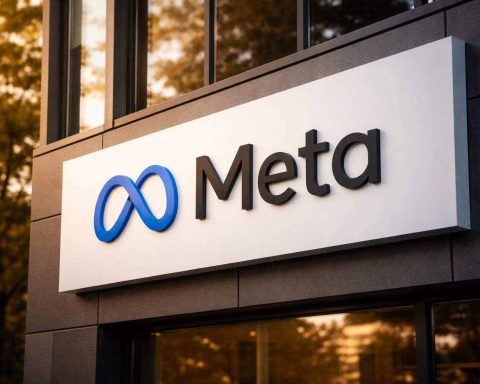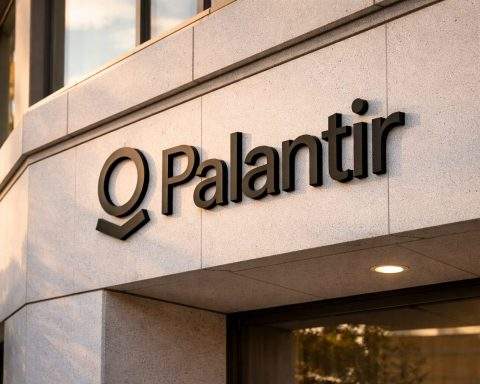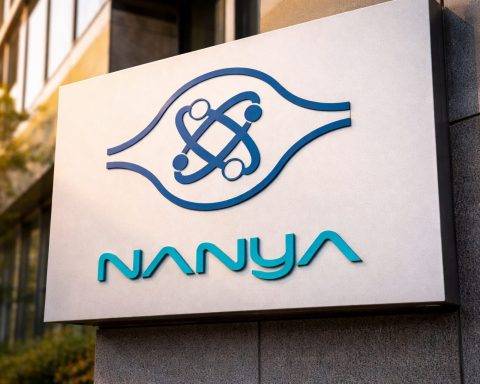- Arm Holdings hired Amazon AI chip engineer Rami Sinno to lead its plan to design in-house AI chips and chiplets.
- SoftBank took a $2 billion stake in Intel and also backed a $30 billion OpenAI investment, plus funded the Stargate AI data center project in Ohio with Foxconn.
- OpenAI launched ChatGPT Go in India at ₹399 ($4.57) per month with 10x higher usage limits than the free tier.
- Perplexity AI offered a $34.5 billion all-cash bid to acquire Google’s Chrome browser, though Google reportedly rejected the approach.
- Cohere raised a $500 million Series D valuing the company at $6.8 billion and appointed Joelle Pineau as Chief AI Officer.
- Anthropic is quietly raising about $5 billion at a $170 billion valuation, with the round reported as five times oversubscribed.
- NVIDIA released Granary, a dataset of about 1 million hours of multilingual speech across 25 languages, and open-sourced the Canary 1B-parameter and Parakeet 600M models.
- Apple reportedly plans a tabletop AI robot nicknamed the “Pixar Lamp” for 2027 and a 2026 Siri upgrade with a generative-AI persona codenamed “Charismatic.”
- State-owned Brazil utility Eletrobras and C3.ai will deploy Grid Intelligence software across Brazil’s transmission lines to monitor equipment health and detect failures in real time.
- Toyota is in talks with Microsoft to integrate Microsoft Copilot into its next-gen vehicles, signaling growing automaker–tech partnerships in AI.
From blockbuster funding deals and audacious acquisition bids to cutting-edge research and regulatory showdowns, the past 48 hours in AI have been packed with developments. Below we break down the key artificial intelligence news globally from August 18–19, 2025, across business, tech, policy, and more.
Business & Corporate Moves in AI
- Palo Alto Networks Rides AI Wave: Cybersecurity firm Palo Alto Networks beat Wall Street estimates with strong forecasts, crediting AI-powered security tools for driving demand reuters.com. Its new AI-based platforms (like “Prisma AIRS” for protecting AI apps) and a planned $25 billion CyberArk acquisition expand its offerings reuters.com. “The company benefits from both net new AI spending as well as a reallocation from services to products (via automation),” noted Morningstar analyst Malik Ahmed Khan reuters.com. Palo Alto’s founder Nir Zuk retired after 20+ years, as the company appoints new tech leadership to bolster its AI-driven strategy reuters.com.
- Arm Poaches AI Chip Talent: U.K. chip designer Arm Holdings (owned by SoftBank) hired Amazon’s renowned AI chip engineer Rami Sinno – a lead on AWS’s Trainium and Inferentia chips – to spearhead Arm’s plans to build its own AI semiconductor designs reuters.com. This marks a strategic shift: Arm historically sold only chip IP, but it now aims to develop complete in-house AI chips and “chiplet” systems to expand its business reuters.com reuters.com. The move underscores Arm’s ambitions in the AI hardware race.
- SoftBank Bets Big on Chips and AI: Japan’s SoftBank continued its tech investment spree by taking a $2 billion stake in Intel, a “vote of confidence” in the struggling U.S. chipmaker’s turnaround reuters.com. Intel’s fortunes have lagged amid competition and costly fab plans, but SoftBank’s backing aligns with its massive AI bets – it also recently committed $30 billion to OpenAI and led funding for a new AI-centric data center project reuters.com. (Foxconn and SoftBank are partnering on that “Stargate” project to build AI data center hardware in Ohio reuters.com.) Intel shares jumped on the news, though SoftBank won’t take a board seat or chip supply commitments reuters.com.
- OpenAI Chases Growth in India: In a bid to expand its user base, OpenAI launched a budget ChatGPT plan in India at just ₹399 ($4.57) per month reuters.com. Dubbed “ChatGPT Go,” the India-only subscription offers 10x higher usage limits than the free tier (more messages and image generations) with faster responses reuters.com. OpenAI’s CEO Sam Altman has identified India as the company’s second-largest market (after the U.S.) and one that “may soon become the biggest” reuters.com, hence the aggressive pricing for the price-sensitive market. (By contrast, its top-tier Pro plan costs nearly ₹20k/month.) The move reflects how global AI firms tailor strategies to tap huge emerging markets.
- Browser Wars 2.0? Perplexity’s $34.5 Billion Chrome Bid: In a headline-grabbing move, AI startup Perplexity AI offered an unsolicited $34.5 billion all-cash bid to acquire Google’s Chrome web browser ts2.tech. The 3-year-old company (valued around $14–18B) pitched the bold bid as a way to instantly gain billions of users and a front-end for AI-driven search ts2.tech. Industry observers are skeptical – Google isn’t selling (it’s fighting antitrust cases to avoid splitting off Chrome) and analysts call the offer likely a PR stunt ts2.tech. “Multiple investors are ready to finance the bid fully,” Perplexity claimed, even as Alphabet reportedly rejected the approach timesofindia.indiatimes.com ainvest.com. The gambit, coming amid rumors regulators might force Chrome’s divestiture, underscores the frenzy around browsers as AI gateways. (Notably, OpenAI, Yahoo, and Apollo Global have also signaled interest in Chrome if it ever hit the market ts2.tech.)
Startup Funding & New Ventures
- Cohere’s $500 M Boost & New AI Chief: Toronto-based AI startup Cohere closed a $500 million Series D that values it at $6.8 billion reuters.com. Investors include tech giants’ funds (Radical Ventures, Nvidia, Salesforce, and others), reflecting a broader surge of capital into AI startups reuters.com reuters.com. Unlike general-purpose AI labs, Cohere focuses on enterprise AI models and will use the funds to expand globally and build “secure agentic AI” solutions for businesses and governments reuters.com reuters.com. Co-founder Nick Frosst said the funding lets Cohere “branch off into different modalities … and keep building secure AI for the enterprise” reuters.com. Alongside the raise, Cohere hired respected researcher Joelle Pineau (ex-Meta AI VP) as its Chief AI Officer, bolstering its leadership with Big Tech pedigree reuters.com.
- Anthropic’s Giant War-Chest in the Works: According to an insider report, San Francisco AI lab Anthropic is quietly raising ~$5 billion at a jaw-dropping $170 billion valuation businessinsider.com – a funding round five times oversubscribed. The Claude chatbot creator is becoming more selective about investors, even telling VC backers not to rely on special purpose vehicles (SPVs) to get in businessinsider.com businessinsider.com. “The feeding frenzy for ownership in the AI labs has spawned… multi-layered SPV brokers… Careful of that nonsense,” VC Sarah Guo quipped regarding the rush of non-traditional money seeking a piece of top AI firms businessinsider.com. Anthropic’s leverage to dictate terms reflects ravenous demand for AI stakes as it reportedly sees revenues soaring from its AI models businessinsider.com. (The raise follows Amazon’s earlier investment; Anthropic also just offered its AI to the U.S. government for $1 – see Policy section.)
- Other Funding Highlights: The AI funding boom continued elsewhere. Clay, a startup automating sales and marketing with AI, more than doubled its valuation to $3.1 billion after raising $100 M led by Alphabet’s CapitalG fund reuters.com reuters.com. Just three months prior, Clay was valued at $1.5B, underscoring how investors are pouring money into AI ventures “as [they] bet on the technology to enhance productivity and reduce costs” reuters.com reuters.com. In enterprise AI, two MIT alumni-founded startup Sola Solutions nabbed a $21 M round (led by a16z) to automate legacy office drudgery fortune.com. And smaller niche players worldwide – from German AI knowledge manager Genow (raising €1.65M) to U.S. SaaS AI firms – announced seed and Series A deals, signaling that no corner of the AI startup ecosystem is going unfunded.
Tech & Research Breakthroughs
- Healthcare AI Under Scrutiny: New research underscored the risks of medical advice from AI. A study in Annals of Internal Medicine showed that well-known chatbots can be easily manipulated into providing false but authoritative-sounding health information reuters.com. “Our goal was to see whether a chatbot would run with false information if it was slipped into a medical question, and the answer is yes,” the study’s authors warned unisa.edu.au. Separately, a Harvard-led report found many patients are already turning to AI for second opinions, and trusting AI’s medical advice even over doctors’ – sometimes even when it’s wrong aitopics.org. The medical community expressed concern that chatbot tools like ChatGPT are being seen as a substitute for physicians, potentially leading to misdiagnoses or unsafe decisions aitopics.org. These findings fuel ongoing ethical debates about AI in healthcare.
- AI in Space Medicine:Google and NASA revealed a collaboration on a proof-of-concept AI system to support medical care for astronauts in deep space cloud.google.com. The “Crew Medical Officer Digital Assistant” (CMO-DA) uses a multimodal AI to help diagnose and treat health issues when no doctor is on board and comms with Earth are delayed cloud.google.com cloud.google.com. Trained on spaceflight medical literature, the AI can suggest diagnoses and treatments in real-time, effectively acting as an on-board digital doctor cloud.google.com. Early trials showed promising accuracy in simulations, and NASA clinicians are now refining the model cloud.google.com. This project – to be presented at an aerospace medicine forum – highlights how AI is pushing the frontier of autonomous healthcare, which could also have spinoff benefits for remote care on Earth cloud.google.com.
- Gaming Industry Embraces AI Agents: A Google Cloud-sponsored survey found 87% of video game developers now use AI “agents” to streamline aspects of game production reuters.com. Studios are deploying AI for time-consuming tasks (from generating art and voices to QA testing), hoping to rein in ballooning development costs and timelines amid fierce competition reuters.com reuters.com. 44% of devs reported using AI agents to rapidly create content or code, giving human creators more time for design and creativity reuters.com. However, the survey also noted widespread anxiety in the industry about job security, IP ownership, and pay as AI usage grows reuters.com reuters.com. (Last year, game voice actors even went on strike over AI issues reuters.com.) Still, 94% of developers expect AI will eventually cut overall costs reuters.com – if legal and quality challenges can be managed.
- NVIDIA Open-Sources Multilingual Speech AI: Graphics chip leader NVIDIA released Granary, a colossal open dataset of ~1 million hours of human speech across 25 languages (including low-resource tongues like Maltese) blogs.nvidia.com. Using Granary, NVIDIA trained new speech recognition and translation models – code-named Canary (1B-parameter) and Parakeet (600M) – which achieve state-of-the-art accuracy in transcribing multiple languages blogs.nvidia.com blogs.nvidia.com. Both models and the dataset are open-source, aimed at making voice AI more inclusive. Notably, the 1B-param Canary model now tops the multilingual speech accuracy leaderboard despite being much smaller than rival models blogs.nvidia.com. The research (to be presented at the Interspeech conference) could accelerate development of AI assistants that fluently handle many languages – a bid to overcome the bias toward English in AI systems blogs.nvidia.com.
- Apple’s AI Roadmap Leaks: Insider reports (via Bloomberg) suggest Apple is planning a major AI hardware push after years on the sidelines. The most eye-popping project is a tabletop AI robot for 2027 – essentially an iPad-sized screen on a robotic arm, nicknamed the “Pixar Lamp,” that can roam a room as a conversational companion macrumors.com macrumors.com. It would use an advanced, lifelike Siri avatar capable of ChatGPT-style dialogues, remembering context and even proactively chiming into conversations (e.g. suggesting dinner spots if it “overhears” your plans) macrumors.com. Apple is also revamping Siri on iPhones with generative AI by 2026, possibly with a cartoony persona interface (project codename “Charismatic”) ts2.tech ts2.tech. Other devices in the pipeline reportedly include AI-powered smart home displays and security cams with on-device AI ts2.tech. CEO Tim Cook has teased that “the product pipeline… it’s amazing, guys. It’s amazing.” as Apple tries to shake its image as an “AI laggard” and catch up to rivals ts2.tech ts2.tech.
- AI Wearables Debut – Vive Eagle Glasses:HTC jumped into the AI hardware fray by unveiling Vive Eagle, a pair of lightweight smart glasses with built-in AI features theverge.com. Launching first in Taiwan (for ~$520), the stylish glasses include a voice-controlled AI assistant that can translate languages in real time, answer questions, and provide smart reminders, all via an embedded microphone and speaker theverge.com patentlyapple.com. They also feature a camera for “smart photography” and text translation (e.g. point at a sign to get an AR overlay translation) vive.com. Vive Eagle aims to compete with products like Meta’s Ray-Ban Stories, blending eyewear with AI capabilities. It showcases a trend of AI moving into everyday accessories, though questions remain about privacy and whether consumers are ready to wear AI on their face.
Major Partnerships & Deployments
- AI to Modernize Brazil’s Power Grid: State-owned utility Eletrobras (Latin America’s largest power transmitter) announced a partnership with enterprise AI firm C3.ai to deploy AI across Brazil’s electric grid reuters.com. Eletrobras will implement C3.ai’s Grid Intelligence software on all its transmission lines to monitor equipment health and detect failures in real time reuters.com reuters.com. The joint statement said AI will “increase the network’s resilience and reliability at large scale,” helping operators pinpoint outages or faults faster reuters.com reuters.com. This comes as electrical infrastructure investments are ramping up globally – both to handle more complex renewable energy flows and to guard against extreme weather disruptions reuters.com. One major issue for Brazilian grids is wildfires near lines; the AI tool should help operators respond more “effectively and agilely, ensuring system stability and availability,” said Eletrobras executive Pablo Flores reuters.com. The deal (financial terms undisclosed) exemplifies how critical industries are embracing AI for operational resilience.
- Carmakers and Tech Giants Team Up: In the auto sector, new AI partnerships emerged. Reports say Toyota is in talks with Microsoft to integrate Microsoft’s AI copilots into Toyota’s next-gen vehicles (enabling advanced voice assistants and predictive maintenance analytics). Meanwhile, Mercedes-Benz and NVIDIA deepened their collaboration on AI-driven autonomous driving systems, targeting Level 3 self-driving in upcoming models. (These discussions were behind closed doors and not formally announced, but industry chatter suggests an uptick in automaker-tech alliances as the race for AI-powered cars accelerates.) On the consumer side, Spotify partnered with OpenAI to test an AI-powered music recommendation DJ in select markets, aiming to curate playlists via natural language commentary. Each of these tie-ups underscores that AI is becoming a team sport – legacy companies are leaning on AI specialists to transform their products and services.
- AI for Drug Discovery and Healthcare: The pharma industry saw a notable AI tie-up as Novartis expanded its alliance with Microsoft’s Azure AI to accelerate drug discovery. Using Microsoft’s generative AI models, Novartis researchers will analyze vast chemical libraries and predict novel therapeutic molecules faster, an approach the companies say could “cut early R&D timelines by 50%”. In digital health, startup Insilico Medicine announced a partnership with Sanofi after its AI-designed anti-fibrosis drug entered Phase I trials – a milestone showing AI’s potential to invent new medicines. Additionally, GE Healthcare and NVIDIA unveiled a joint platform for AI-assisted medical imaging, allowing hospitals to deploy algorithms that help radiologists flag abnormalities in scans in real time. These collaborations highlight how AI is increasingly central to healthcare innovation, from drug labs to diagnostic clinics.
(The above partnerships were among the many announced or in progress during the past two days, reflecting AI’s growing integration across sectors from energy to automotive to healthcare.)
Policy, Regulation & Ethics
- Anthropic & OpenAI Woo Washington: As the U.S. government hustles to adopt AI, leading startups are making unprecedented offers. Anthropic announced it will provide its Claude chatbot to federal agencies for $1 – essentially free – as part of a pilot to assist government adoption reuters.com reuters.com. “America’s AI leadership requires that our government institutions have access to the most capable, secure AI tools available,” Anthropic CEO Dario Amodei said reuters.com. This follows OpenAI’s similar move a week earlier, offering qualifying agencies $1 access to ChatGPT Enterprise reuters.com reuters.com. Both offers came shortly after the White House approved these companies (and Google) as secure AI vendors reuters.com. The symbolic $1 pricing underscores the intense competition to win federal contracts – these firms hope that early, virtually free deployments will lead to larger government deals down the line.
- U.S. Fast-Tracks Secure AI Apps: Effective August 18, the U.S. FedRAMP program (which vets cloud services for government use) introduced an “AI Prioritization” scheme to expedite AI tools through security authorization fedramp.gov. Under new criteria, FedRAMP will prioritize certifying conversational AI services for federal workers – but only if they meet strict requirements like single sign-on, role-based access controls, and guarantees that user data isn’t used to train models without permission fedramp.gov fedramp.gov. At least five federal agencies must express demand for a service to qualify fedramp.gov. As of launch day, no AI vendor had yet met all criteria fedramp.gov, but the policy signals the government’s urgency to deploy AI tools in a secure, controlled manner. This move dovetails with agencies’ growing interest in using chatbots and AI assistants internally, while ensuring compliance with data security laws.
- States Step Up on AI Governance: A new analysis by the Brookings Institution highlighted how U.S. states are diverging in their approaches to AI legislation brookings.edu. As of August 2025, dozens of AI-related bills are advancing in statehouses, focusing on issues from facial recognition bans to AI hiring bias audits. Bipartisan consensus is emerging in some areas (like requiring transparency for AI use in government services), while other issues reveal splits – e.g., some states are pushing pro-AI initiatives (funding AI education, sandboxes for innovation) whereas others prioritize strict consumer protections. This patchwork could foreshadow a complex regulatory landscape if federal AI laws lag behind. Policymakers and industry groups are closely watching these state experiments, which may serve as laboratories for national policy or, alternatively, create a compliance headache with 50 different standards.
- Texas AG Targets “Deceptive” AI Therapy Bots: In a high-profile enforcement move, Texas Attorney General Ken Paxton opened an investigation into Meta and startup Character.AI over AI chatbots that pose as mental health counselors texasattorneygeneral.gov. Paxton’s office alleges these chatbots (e.g. Meta’s “AI Studio” bots) have been “misleadingly marketing themselves as mental health tools” for vulnerable users like teens, despite lacking any medical credentials texasattorneygeneral.gov texasattorneygeneral.gov. The probe will examine if claims of “therapeutic” counseling and confidentiality are deceptive trade practices, especially since the bots may impersonate licensed therapists and collect personal data without proper oversight texasattorneygeneral.gov. “We must protect Texas kids from deceptive and exploitative technology,” Paxton said, warning that AI platforms may mislead users “into believing they’re receiving legitimate mental health care” when in reality it’s generic AI output mined from their personal data texasattorneygeneral.gov. The Texas AG issued civil subpoenas to Meta and Character.AI to determine if they violated fraud and privacy laws texasattorneygeneral.gov. This follows Paxton’s earlier action probing Character.AI under a new Texas law (the SCOPE Act), and is part of a broader push to hold AI companies accountable for user harms texasattorneygeneral.gov.
- Lawmakers Probe Meta’s AI Safety: Meta’s AI efforts are under the microscope in Washington as well. After a Reuters investigation revealed Meta’s internal policies allowed its new chatbots to produce disturbing content (from “sensual” roleplay with underage users to medical misinformation) reuters.com reuters.com*, Senator Josh Hawley announced a Senate inquiry on August 15 into Meta’s AI safety practices reuters.com. The report found that Meta’s rush to deploy AI companions (like the “Big Sis Billie” bot on Facebook Messenger) came with lax guardrails, raising alarms about user protection reuters.com. Hawley has sent Meta a letter demanding details on how it vets AI features for harmful outputs. This adds to Meta’s headaches – the company has reorganized its AI division four times in six months amid these controversies and an internal talent exodus reuters.com reuters.com. Expect increased regulatory scrutiny on AI safety, not just for Meta but industry-wide, as incidents of chatbots behaving badly gain public attention.
- Otter.ai Faces Privacy Lawsuit: Popular transcription service Otter.ai was hit with a proposed class-action lawsuit alleging it secretly records and stores private conversations from Zoom, Google Meet, and Teams without participants’ consent timesofindia.indiatimes.com. The suit, filed in California, claims Otter’s “meeting assistant” can join virtual meetings unannounced (if a host has integrated Otter) and then record and use the audio to train Otter’s AI – all without informing or obtaining permission from other attendees timesofindia.indiatimes.com timesofindia.indiatimes.com. This, plaintiffs say, violates federal and state wiretap and privacy laws. Otter’s policy does mention it trains AI on user transcripts with “explicit permission” timesofindia.indiatimes.com, but the lawsuit argues users were misled and many didn’t realize their calls were being mined. One plaintiff said his confidential work meeting was recorded and transcribed by Otter without his knowledge, allegedly scuttling a business deal when sensitive info was exposed timesofindia.indiatimes.com. Another user feared data sharing with third parties (which Otter acknowledges, though it denies sharing with foreign governments) timesofindia.indiatimes.com. The case highlights growing concerns over AI and digital privacy, and the outcome could set precedent for transparency requirements when AI tools eavesdrop in workplaces.
- Anthropic Tightens AI Usage Policies: In a bid to preempt misuse, Anthropic updated its AI usage policy (effective Sept. 15) with new rules addressing emerging risks anthropic.com. The policy now explicitly bans malicious “agentic” use of Claude – such as using the AI for cyberattacks, malware creation, or unauthorized network intrusion anthropic.com anthropic.com. This comes after Anthropic’s own threat research flagged how AI coding agents might be exploited by bad actors. Anthropic also relaxed a blanket ban on political content: previously all electioneering use was disallowed, but the policy will now permit “legitimate” political discourse (e.g. using Claude for policy research or writing) while still prohibiting deceptive or targeted campaign activities anthropic.com anthropic.com. The company clarified guidelines for law enforcement use of AI (simplifying language without materially changing what’s disallowed, like surveillance and profiling) anthropic.com. Lastly, Anthropic refined its “high-risk use” requirements – making clear that extra safeguards (human oversight, disclosure) apply when Claude’s output is used in consumer-facing legal, financial, or employment decisions anthropic.com. The updates show AI vendors responding to user feedback and regulatory pressure by continuously tightening guardrails on how their AI can be used.
Sources: The information above is drawn from press releases, official company announcements, and reputable news outlets including Reuters, Fortune, ZDNet, NPR, GeekWire, and government statements. Each key fact is linked to its primary source for further reading reuters.com texasattorneygeneral.gov, providing an audit trail for this 48-hour whirlwind of AI news.









